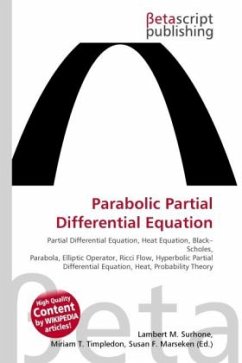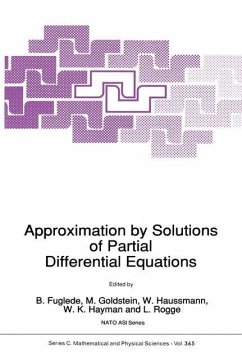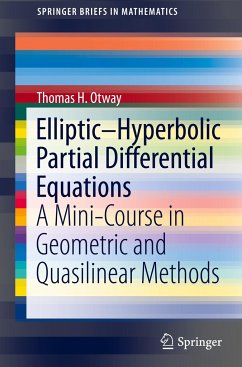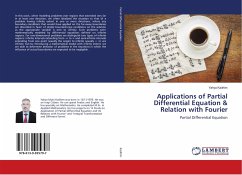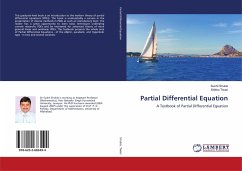
Hyperbolic partial differential equation
Versandkostenfrei!
Versandfertig in 6-10 Tagen
19,99 €
inkl. MwSt.

PAYBACK Punkte
10 °P sammeln!
In mathematics, a hyperbolic partial differential equation is a partial differential equation (PDE) that, roughly speaking, has a well-posed initial value problem. Many of the equations of mechanics are hyperbolic, and so the study of hyperbolic equations is of substantial contemporary interest. The model hyperbolic equation is the wave equation. In one spatial dimension, this isThe equation has the property that, if u and its first time derivative are arbitrarily specified initial data on the initial line t = 0 (with sufficient smoothness properties), then there exists a solution for all time...
In mathematics, a hyperbolic partial differential equation is a partial differential equation (PDE) that, roughly speaking, has a well-posed initial value problem. Many of the equations of mechanics are hyperbolic, and so the study of hyperbolic equations is of substantial contemporary interest. The model hyperbolic equation is the wave equation. In one spatial dimension, this isThe equation has the property that, if u and its first time derivative are arbitrarily specified initial data on the initial line t = 0 (with sufficient smoothness properties), then there exists a solution for all time.If a disturbance is made in the initial data of a hyperbolic differential equation, then not every point of space feels the disturbance at once. Relative to a fixed time coordinate, disturbances have a finite propagation speed. They travel along the characteristics of the equation. This feature qualitatively distinguishes hyperbolic equations from elliptic partial differential equations andparabolic partial differential equations. A perturbation of the initial data of an elliptic or parabolic equation is felt at once by essentially all points in the domain.




